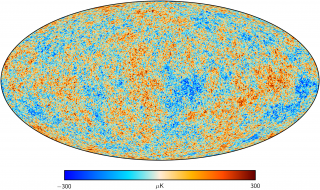Bibcode
Tucci, M.; Rubiño-Martin, J. A.; Rebolo, R.; Genova-Santos, R.; Watson, R. A.; Battye, R. A.; Cleary, K. A.; Davies, R. D.; Davis, R. J.; Grainge, K.; Hobson, M.; Saunders, R. D. E.; Scaife, A.; Scott, P. F.
Bibliographical reference
Monthly Notices of the Royal Astronomical Society, Volume 386, Issue 3, pp. 1729-1738.
Advertised on:
5
2008
Citations
15
Refereed citations
14
Description
We present an analysis of the spectral properties of the extragalactic
radio sources in the nearly complete Very Small Array (VSA) sample at
33GHz. Data from different surveys are used to study source spectra
between 1.4 and 33GHz. We find that, in general, spectra cannot be well
described by a single power law in the range of frequencies considered.
In particular, most of the VSA sources that are steep between 1.4 and
5GHz, show a spectral flattening at ν > 5GHz. We identify 20
objects (19 per cent of the sample) clearly characterized by an upturn
spectrum, i.e. a spectrum falling at low frequencies (ν <~ 5GHz)
and inverted at higher frequencies. Spectra with high-frequency
flattening or upturn shape are supposed to occur when the emission from
the active galactic nucleus (AGN) compact core begins to dominate over
the component from extended lobes. This picture fits well with the AGN
unified scheme, for objects observed at intermediate viewing angles of
the AGN jet. Finally, we discuss implications that this class of sources
can have on future cosmic microwave background observations at high
resolution.
Related projects

Anisotropy of the Cosmic Microwave Background
The general goal of this project is to determine and characterize the spatial and spectral variations in the temperature and polarisation of the Cosmic Microwave Background in angular scales from several arcminutes to several degrees. The primordial matter density fluctuations which originated the structure in the matter distribution of the present
Rafael
Rebolo López